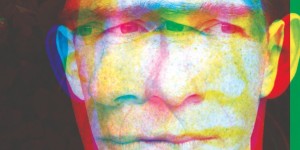TRENDSPOTTING: The blurring lines between indie and pop
by Richard Trapunski
February 7, 2013
At the end of the year, everyone goes into the ‘Trendspotting’ business. Pushed by editors to go beyond Frank Ocean and Kendrick Lamar’s consensus albums of the year, a number of publications got out their magnifying glasses to identify 2012’s overarching debates, themes and tendencies: the emergence of “alt-R&B,” the economic crisis of the working musician, and the rise of EDM from underground subculture to festival-headlining mega-genre. That’s all been covered in this column, but they all tend to point to one bigger meta-trend: the blurring of lines between “indie” and “pop,” “underground” and “mainstream.”
That’s why, despite our affinity for channel ORANGE and good kid, m.A.A.d. city, AUX chose Grimes as 2012’s artist of the year. A self-described “post-Internet” cultural omnivore as influenced by Skinny Puppy as Mariah Carey, the 24-year old Montreal musician captures that web-driven zeitgeist more than any other current musician. Grimes has made a year out of confounding anyone that thinks they’ve got her figured out, so perhaps it shouldn’t come as a surprise that shortly before the clock hit 2013, she destroyed our convenient narrative and showed that though the lines have blurred, they still very much exist.
On December 29, Grimes took to her Tumblr (which is already a very 2012 sentence to type) [and since this article was originally written, she deleted the whole thing] to flesh out her response to a recent Pitchfork column, This Must Be Pop. In it, writer Lindsay Zoladz praises Grimes for her limitless, genre-bypassing approach to music, and refers to an earlier, more apprehensive Pitchfork article that claims the crossover success of singers like Charli XCX, Sky Ferreira, and Solange are erasing the former “us vs. them” stigma associated with liking pop music by attaching themselves to collaborators from the indie rock world, fuzzily nostalgic production, and “flimsy aesthetic signifiers.”
She writes:
“For the music fan, the move from analog to digital means a sudden shift from scarcity to unlimited access. And as many writers have observed, the person with the most discerning taste was no longer the “music snob” devoted to obscure subgenres and hating on anything that might be popular, but instead the “cultural omnivore” who likes a little bit of everything and gives all genres—including pop—a fair shake. The tectonic plates are still shifting and colliding as we continue to sort all of this out. It remains a confusing, anarchic, oddly liberating moment.”
Though music still plays an important role in how people (especially young people) form and define identity, she argues, it’s no longer split along the age-old tribal pop-versus-indie lines, that those categories become meaningless in a realm in which no respectable music library is complete without a little Madonna with your Black Flag. But her perspective is limited to that of a listener. Grimes’ Tumblr response demonstrates that the theory, as great as it sounds, doesn’t tidily extend to the artists actually creating the music, even the ones who coin catchy buzzwords to describe the disintegration of categories:
“Credit should be given where it is due. The weird middle ground between “indie” and “mainstream” where like, Sky Ferreira and Arcade Fire live takes artists from both streams and sometimes its hard to tell who is doing what. I don’t think either stream is less legitimate than the other. but they are different, and i think its important to recognize when something is happening independently or when something is happening with a team behind it. So I’m not saying that Sky and Charli won’t ever produce, or that I’m not completely influenced by major label pop music. I mean, this whole argument stems from an article about how these lines are blurring. But at the end of the day, even if the packaging looks similar, we are pretty distinct artists, especially in terms of what our roles are in our projects. Sometimes I resent not being credited as the sole writer, producer and performer on my records. I dunno, I think I deserve that.”
Using “indie” as a term for a genre strips it of its former characterization as do-it-yourself ethos, but the residue remains. Grimes claims all music, including pop, as fair game for influence, but she distinguishes herself from major label stars by means of her literal independence. Pop music, however, is traditionally a producer’s genre. Britney Spears and Katy Perry might be the names on the records, but without behind-the-scenes wizards like Max Martin or Dr. Luke, they’d be literally nothing but image. Without acknowledging those men behind the curtain, their “bottom-up” influence on an indie artist like Grimes is only one part of the story.
And those men behind the curtain—let’s be honest—are usually men, which may have something to do with her dismissal. Pop singers (often, but not always, either females or infantilized males) are frequently treated as empty vessels to be implanted with hits. That distinguishes Grimes from, say, Solange, whose reinvention as a throwback R&B nostalgist is rarely profiled without crediting her producer and main collaborator, Blood Orange’s Dev Hynes. It’s not hard to grasp why Grimes might find that problematic.
But by so freely cribbing from pop music without acknowledging or participating in its dominant modes of production, Grimes is contributing to the confusion. For a large majority of “post-internet” listeners, “pop” and “indie” is presented in the same outlets without the context to distinguish them from each other. PSY and Carly Rae Jepson owe their success to YouTube, as does Justin Bieber. They’re playing in the same arena that Grimes is: the internet. So if a major label fails to launch a singer like Sky Ferreira through traditional pop routes, it can dress her up, get her a prime soundtrack placement on Girls, and put her onstage at SXSW, and few will be the wiser.
Once they figure out the rules of the game, though, there’s nothing quite so swift and brutal as the disavowal of “music snobs” who’ve realized they’re being pandered to. It didn’t take long for the online thinkpiece community to turn its backs on Lana Del Rey as soon as it became apparent her “hipster Nancy Sinatra” aesthetic was the work of a team and not a solitary pop auteur. It seems only a matter of time before the pattern repeats itself with Charli XCX or Sky Ferreira. So much for all that blurring.
But appropriation works both ways, whether it’s Rihanna trolling Seapunk or Grimes referencing Tiffany. As long as technology keeps bringing them together, the two realms will continue to feed off each other and eventually, maybe, blur into one, but there’s still a ways to go. The internet may have created the space for them to co-exist, but old prejudices are tough to shake.
This article originally appeared in the December/January issue of AUX Magazine. Download and subscribe for free in the App Store.
Tags: Music, Featured, News, AUX Magazine, Indie, Trendspotting, Tumblr





